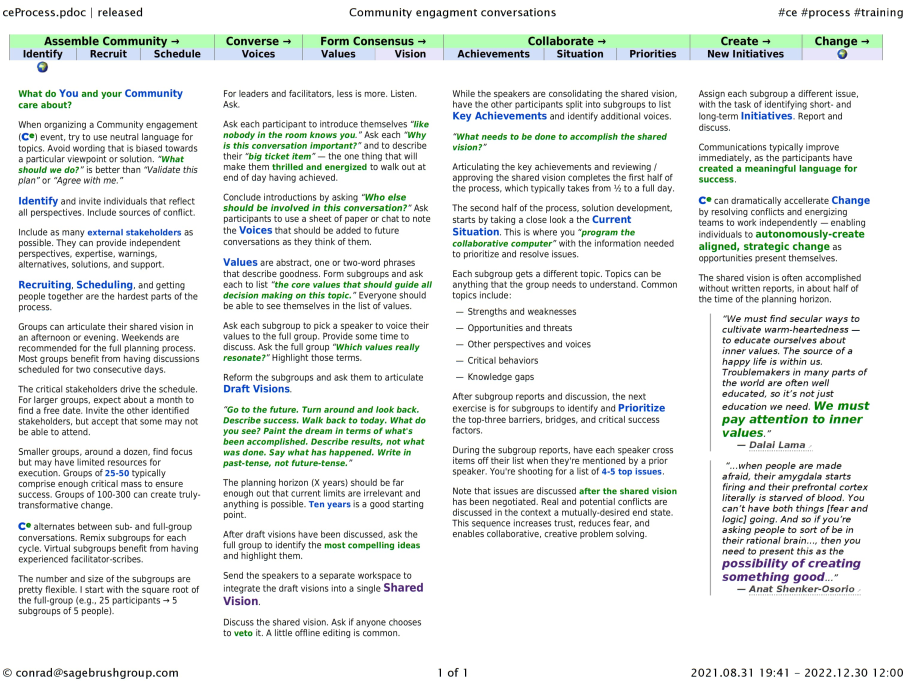Bottom-up negotiations to define shared meanings
Policy is what you do, not what you say or write. | ||
| --Paul Strassmann, The Politics of Information Management | ||
A few more mantras from Strassmann: “Information management is primarily a question of politics and secondarily one of technology.”“Operational decisions take care of today. Management decisions protect the future.”“Without privacy, there is no freedom.”
Negotiations around markup are rarely zero-sum. The ability to handle optional structures usually provides sufficient flexibility to accommodate different stakeholder interests. Even so, as the complexity of the project increases, integrating the multiple perspectives becomes more challenging.
Just as bottom-up markup starts with defining semantic values, a parallel, bottom-up approach to decision making starts with conversations to define common human values.
As the discussion topics progress, the group creates a shared vision for change and looks at the current conflicts from a position of safety. Issues are prioritized, and initiatives defined — quickly and without conflict.
More importantly, the process is energizing. Individuals see their values in the shared vision, and the new initiatives as a way to accomplish personal objectives.
From an ontological perspective, the identification, articulation, and prioritization of abstract values, starts a formalization process. The corresponding conversations create shared meanings to support the new language.
The following training aide describes the process in more detail:
Figure 37. Community engagement process
|
